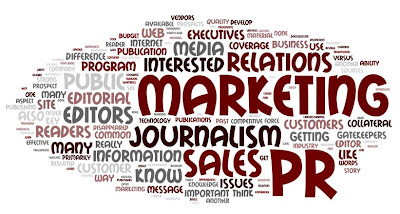"Public Relations helps an organization and its publics adapt mutually to each other."
The above statement is the definition of public relations according to an article titled “Redefining P.R. in the Age of Social Media.” Now at first glance one would assume that this definition “fits the bill” so to speak, however when media literate or involved in the public relations world, one can find many holes in that sentence.
The above statement is the definition of public relations according to an article titled “Redefining P.R. in the Age of Social Media.” Now at first glance one would assume that this definition “fits the bill” so to speak, however when media literate or involved in the public relations world, one can find many holes in that sentence.
To begin the statement claims that there is a mutual relationship between the organization being helped and the publics it promotes to. I would beg to differ that this relationship is not equal because the company or organization using the public relations firm has an agenda. This agenda is first and foremost to make money, not to necessary cater to the public. Are they really helping the public?
Second many would argue that the public relations firm does not help the organization adapt to the public, but to help them communicate a message through a given medium to the public. This being said, it means that P.R. and the organization decide what the message is and how it will be delivered. Does this sound like a mutual relationship with the public if they have the ability to decide what is said and when it is said?
In the same article mentioned above, several members of the Public Relations community discussed their thoughts of the current state of the P.R. professional environment.
Adam Lavelle, a member of the board of the Word of Mouth Marketing Association who is the chief strategic officer at the iCrossing unit of Hearst stated,
“Before the rise of social media, public relations was about trying to manage the message an entity was sharing with its different audiences. Now, P.R. has to be more about facilitating the ongoing conversation in an always-on world.”
Dan Tisch, chairman of the Global Alliance for Public Relations and Communication Management, said
“We as a profession have to explain what we do, in terms that are memorable, relevant, clear and consistent. In a world where the ordinary consumer is walking around with global publishing power in his or her pocket, the role of public relations and corporate communications has shifted from creating content to attempting to influence the content that’s created by others.”
Both professionals express concern with the current world Public Relations. They discuss the changes caused by technology and more importantly, social media. With social media, the general public is able to communicate their thoughts and feelings about a brand, product, or corporation. The problem with this scenario is that they have the ability to provide not only false information about the company, but also their negative ideas.
The definition of Public Relations should not allow for any doubt to argue for unethical decisions in business practice, which the current vague definition does. The classification of P.R. should emphasize the impact it has on the public and the business world, as well as show importance to telling the truth.
In the article “Time for Resolutions: Will You Commit to P.R. Ethics is 2012?” the author shows the influence P.R. has by stating, “The U.S. public relations industry concluded a remarkable five-year growth period in 2011, reaching $5.7 billion in annual client spending.” He also says that P.R. spending will double in the following year.
It’s hard not to see the power P.R. firms have over the way messages are delivered to us. It would not be a problem if they always told the truth, but as stated in the article above, there were many poor decisions made in P.R. in 2011.
One example was the P.R. smear campaign created by firm Buron-Marsteller. The firm was hired by social media powerhouse Facebook to secretly attack the new social media platform created by corporation Google. The smear campaign, which has been called “Whisper-Gate”, had journalists working for B-M and pitching false claims of privacy issues with Google’s site. Several news outlets including USA Today found the claims suspicious and after much research discovered they were all false.
This unethical campaign caused much controversy for not only impacting Google and its users, but also affecting the entire world of Public Relations. In the articles “PRSA official: Smear Campaigns Have No Place in PR” and “Why All of PR Will Pay for ‘Whisper-Gate’” the affects of the campaign are developed further.
The campaign when against what P.R. is believed to stand for which is representing brands and corporations in a fashion that is truthful and honest. Instead this P.R. firm went against the importance of credibility and focused on the monetary gains they would received from Facebook.
The FTC and PRSA are not trying to have P.R. practices monitored for their decisions when creating campaigns. I think this might help at first, but how it is possible to monitor what everyone is doing, is it really necessary? I think the problem to begin with is that people should know what decisions are unethical. The problems start when they lose that in the sight of money.
So the question now stands: What should Public Relations do now?
Interestingly enough the co-founder of Buron-Marsteller Harold Burson had it right back in 2009,
“The public relations professional helps hone the messages that will be most persuasive to the audience and selects the media (usually a mix of media) that will deliver the messages most credibly and economically. It goes without question that this process take place within the context of uncompromised dedication to truth and transparency.”
So I wonder what happened from 2009 to now?
Referenced Texts:




No comments:
Post a Comment